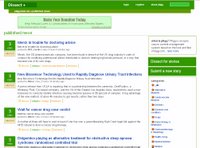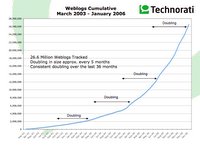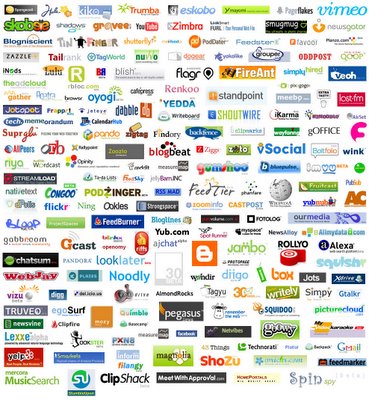 Whether you like it or not, we live in a Goggle world. It is important to control the online information about you because throughout your medical career people will be Goggling you all the time:
Whether you like it or not, we live in a Goggle world. It is important to control the online information about you because throughout your medical career people will be Goggling you all the time:- If you are a resident applying for a fellowship, the fellowship director may search for your name online. For example, BusinessWeek reports that a college professor in North Carolina has scanned Facebook.com profiles to determine which students to accept into his class.
- If you are finishing a residency and looking for a job, your prospective employer may check you online identity.
- If you are in practice, you patients may be Googling your name.
Lifehacker has some advice how to build an online identity you can rely on. One of them is to own a domain with your name. For example, Kent Bottles, M.D. of SoundPractice.com owns KentBottles.com. For more tips, check out Geek to Live: Have a say in what Google says about you.
Google Page Creator makes creating your own website easy and free. Dr. Joshua Schwimmer's page is a good example.
References:
Geek to Live: Have a say in what Google says about you. Lifehacker.com, also image source.
Big Brother Is Reading Your Blog. BusinessWeek.com.
How to Clean Up Your Digital Dirt. CollegeJournal.
Help! If employers Google me, they'll find a racy site. CNN Money.
It’s a Big, Blog World Out There: Five Quick Tips to Building a Better Blog. ChangeThis.com.
Check domain availability on InstantDomainSearch.com
Further reading:
Doctors should Google themselves? ScienceRoll.com.
Use Facebook as a Marketing Tool. LifeHacker.com, 09/2007.
Build a Facebook Profile You Can Be Proud Of. Quick Sprout, 09/2007.
Use My Photo? Not Without Permission. NYTimes, 10/2007.
Ego Surfing: How to Perform That Daily Ritual of Googling Your Name. Digital Inspiration, 11/2007.
Racy photo costs mayor her job. CNN Video, 02/2008.
Two faces of people search. FT.com, 04/2008.
How to manage your reputation online. Medical Economics, 01/2009.
Journal of Clinical Orthodontics published an article by SEO exert "MasterGoogle .com" on how to to outrank your competition... http://goo.gl/J8pzL





















